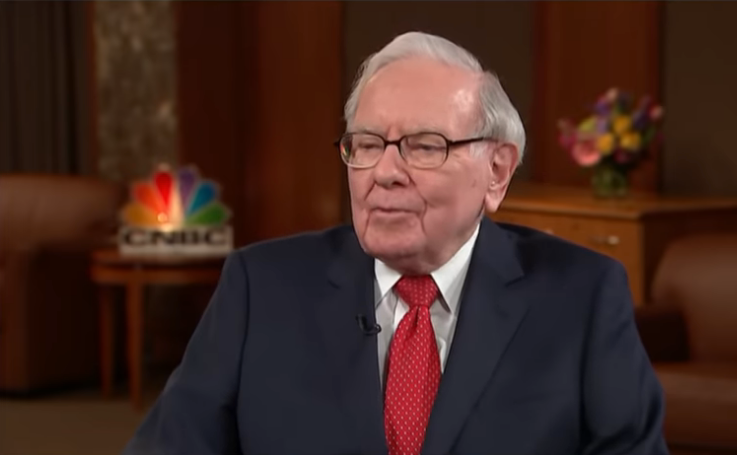Here are billionaire Warren Buffett's 8 investing rules for getting rich.
Rule 1: Pick and choose your investments carefully
“I call investing the greatest business in the world … because you never have to swing. You stand at the plate, the pitcher throws you General Motors at 47! U.S. Steel at 39! and nobody calls a strike on you. There's no penalty except opportunity lost. All day you wait for the pitch you like; then when the fielders are asleep, you step up and hit it.”– Interview in Forbes magazine, November 974
“An investor should act as though he had a lifetime decision card with just twenty punches on it.”
“If you aren't willing to own a stock for ten years, don't even think about owning it for ten minutes. Put together a portfolio of companies whose aggregate earnings march upward over the years, and so also will the portfolio's market value.”
“I never attempt to make money on the stock market. I buy on the assumption that they could close the market the next day and not reopen it for five years.”
Rule 2. Invest in companies you like
“Buy into a company because you want to own it, not because you want the stock to go up.”
“Buy a stock the way you would buy a house. Understand and like it such that you’d be content to own it in the absence of any market.”
Rule 3. Invest in quality companies at a discount
“It's far better to buy a wonderful company at a fair price than a fair company at a wonderful price.”
“Long ago, Ben Graham taught me that ‘Price is what you pay; value is what you get.' Whether we're talking about socks or stocks, I like buying quality merchandise when it is marked down.”
“For the investor, a too-high purchase price for the stock of an excellent company can undo the effects of a subsequent decade of favorable business developments.”
Rule 4. When you find a good opportunity, invest A LOT
“Opportunities come infrequently. When it rains gold, put out the bucket, not the thimble.”
Rule 5. An even temperament is essential
“Success in investing doesn’t correlate with IQ … what you need is the temperament to control the urges that get other people into trouble in investing.”
“The most important quality for an investor is temperament, not intellect. You need a temperament that neither derives great pleasure from being with the crowd or against the crowd.”
Rule 6. Look for long-term competitive advantages
“The key to investing is not assessing how much an industry is going to affect society, or how much it will grow, but rather determining the competitive advantage of any given company and, above all, the durability of that advantage.”
Rule 7: Don't listen to predictions or outside noise
“I will tell you how to become rich. Close the doors. Be fearful when others are greedy. Be greedy when others are fearful.”
“We've long felt that the only value of stock forecasters is to make fortune tellers look good. Even now, Charlie and I continue to believe that short-term market forecasts are poison and should be kept locked up in a safe place, away from children and also from grown-ups who behave in the market like children.” — 992 Berkshire Hathaway Chairman's Letter
“Forecasts may tell you a great deal about the forecaster; they tell you nothing about the future.”
“If past history was all that is needed to play the game of money, the richest people would be librarians.”
“Investors should be skeptical of history-based models. Constructed by a nerdy-sounding priesthood using esoteric terms such as beta, gamma, sigma and the like, these models tend to look impressive. Too often, though, investors forget to examine the assumptions behind the models. Beware of geeks bearing formulas.”
Rule 8: Become an expert at evaluating certain businesses
“What an investor needs is the ability to correctly evaluate selected businesses. Note that word selected: You don't have to be an expert on every company, or even many. You only have to be able to evaluate companies within your circle of competence. The size of that circle is not very important; knowing its boundaries, however, is vital.”
“I try to buy stock in businesses that are so wonderful that an idiot can run them because sooner or later, one will.”
“Diversification is a protection against ignorance. It makes very little sense for those who know what they're doing.”
“If a business does well, the stock eventually follows.”

